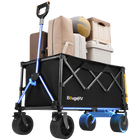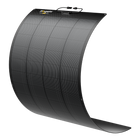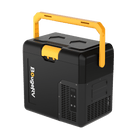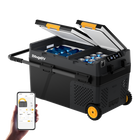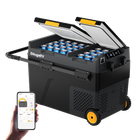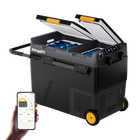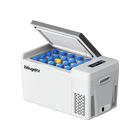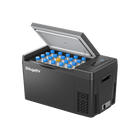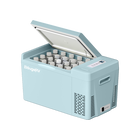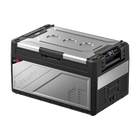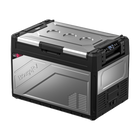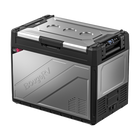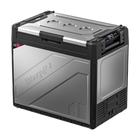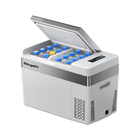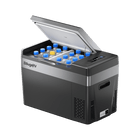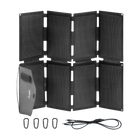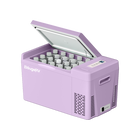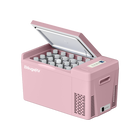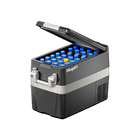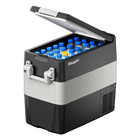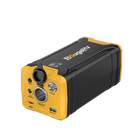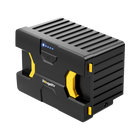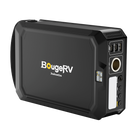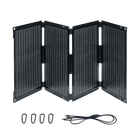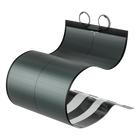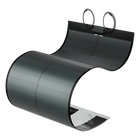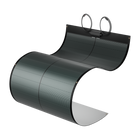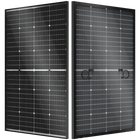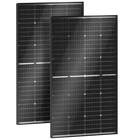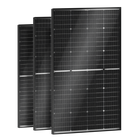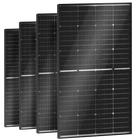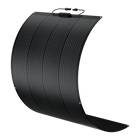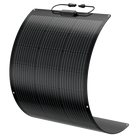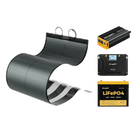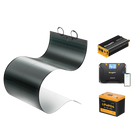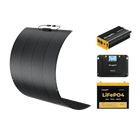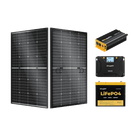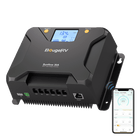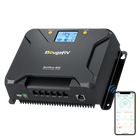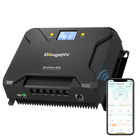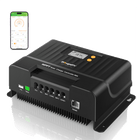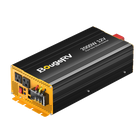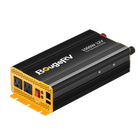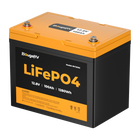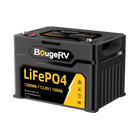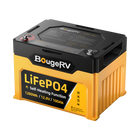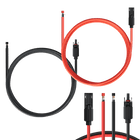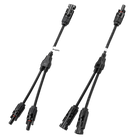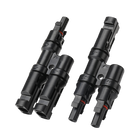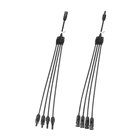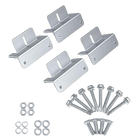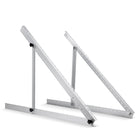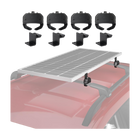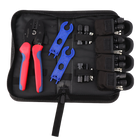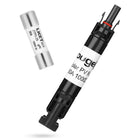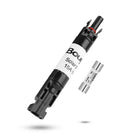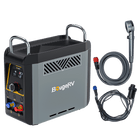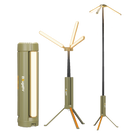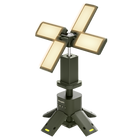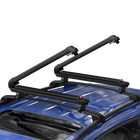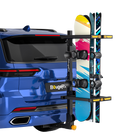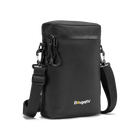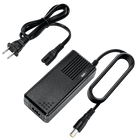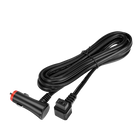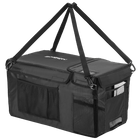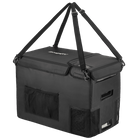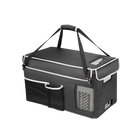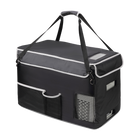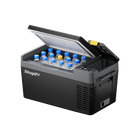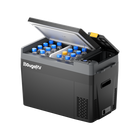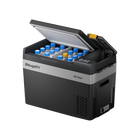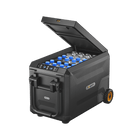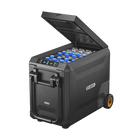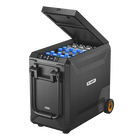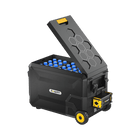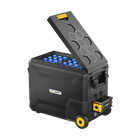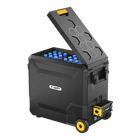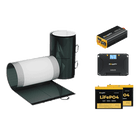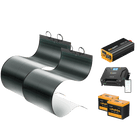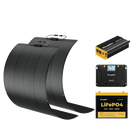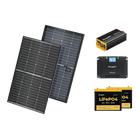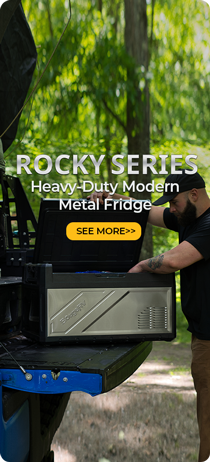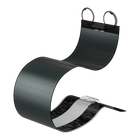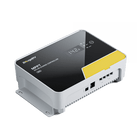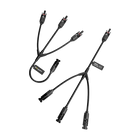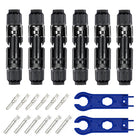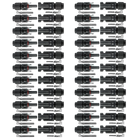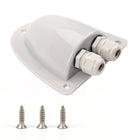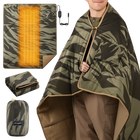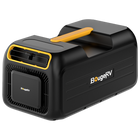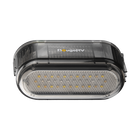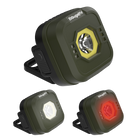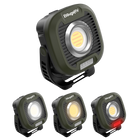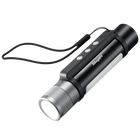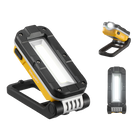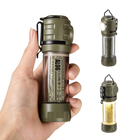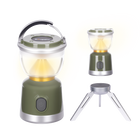Do Solar Panels Work on Cloudy Days?


Considering going green by adding solar panels to your home for off-grid living? Solar panels can free you from the limitations and costs of traditional power sources. But here's a question you might be pondering: "What happens if I live in a place where cloudy and overcast days are more common than not? Can solar panels really work under cloudy conditions?" The quick response is: Yes, they absolutely can!
In this blog, we will further clarify how solar panels continue to work, even under cloud cover, and share some tips on keeping your solar panels working at their best, no matter the weather.
Without any more delay, let's jump right into it!
How Do Solar Panels Work?
Before we delve into how cloudy weather can impact solar panels, let's first get a handle on how these solar panels actually produce electricity.
Solar panels, also known as photovoltaic (PV) panels, convert sunlight into electricity. They consist of PV cells made from a semi-conductive material, usually silicon. When sunlight hits the solar cells, it dislodges electrons, creating a flow of electricity. This process is amplified by an electric field within each cell, directing the free electrons into a current. This current is then converted into usable energy for your home and RV appliance.
In this process, sunlight plays a crucial role. The stronger the sunlight, the more energy your solar panels can generate. This is because when the sunlight intensity increases, more photons hit the photovoltaic cells, dislodging more electrons and thereby creating a stronger electrical current.
Solar Panels Can Work on Cloudy Days

You might picture your solar panels kicking back and taking a break on a cloudy day, but they're still out there working! While it’s true that solar panels perform at their best in direct sunlight, they’re capable of producing electricity even when the skies are cloudy or overcast as solar panels harness the diffused sunlight.
However, it’s important to note that the efficiency of your solar panels can drop during these cloudy conditions. Anything that gets in the way of direct sunlight, be it clouds, fog, or shadow from trees, can potentially reduce electricity generation.
Solar Panel Efficiency on Partially Cloudy Days
With partial cloud coverage, solar panels can still create a substantial amount of electricity. Various studies suggest that on a cloudy day, solar panels can produce anywhere from 10% to 25% of their usual output. This percentage can vary based on the solar panel’s efficiency and the cloud coverage level. And thicker, denser clouds block more sunlight, resulting in a more significant reduction in electricity generation.
Solar Panels Efficiency on Overcast Days
When the sky is heavily overcast, your solar panels might see a significant decline in their power production. The thick cloud cover blocks a substantial amount of sunlight, reducing the amount of solar energy that the solar panels can absorb.
Consequently, your solar panels may only operate at a minimal capacity or may not generate any electricity at all.
The Edge-of-Cloud Effect
Despite the reduction in sunlight intensity on cloudy days, solar electricity production can also intensify for brief moments on cloudy days due to the “edge-of-cloud” effect. This effect occurs when cumulus clouds pass by the sun and their edges magnify sunlight, leading to more powerful sun rays reaching solar panel surfaces.
Do Solar Panels Work on Rainy and Snowy Days?

Like cloudy days, your solar panels can still work and generate some electricity during rainy or snowy conditions, although efficiency may drop due to less available sunlight. Interestingly, light snow can actually improve performance by reflecting sunlight onto the panels, but heavy snowfall that covers the panels will hinder energy production until it's cleared away.
Do Solar Panels Work in the Shade?
Except for weather conditions, shading can also influence your solar panels’ performance. When a portion of a solar panel is shaded, it creates a mismatch in the electrical current flow within your solar panel. This mismatch can lead to a drop in overall panel performance, as shaded solar cells produce less electricity than those unshaded.
Therefore, it's essential to ensure that your solar panels are installed on surfaces with minimal shading to maximize the solar panels’ efficiency. Seeking advice from a professional installer can help identify the best spot for your solar setup.
Do Solar Panels Work at Night?
As night falls, solar panels cease to produce electricity due to the lack of sunlight for conversion into energy. However, this doesn't imply that you'll be without power after sunset if you depend on solar energy.
Energy storage solutions such as solar batteries store surplus electricity gathered throughout daylight hours. This stored energy is then tapped by inverters to keep your electronic devices running during the nighttime.
Tips to Enhance Your Solar Panels' Efficiency on Cloudy Days

So far, we've acknowledged that solar panels can work on cloudy days, but with a bit of a drop in efficiency. But fret not! There are several tactics to enhance your solar panels' performance even when the sun is blocked by clouds:
1. Regular cleaning. Ensure your panels are clean and free from dust or debris. A dirty panel can reduce electricity generation as less sunlight will reach the solar cells.
2. Optimal angling. Position your solar panels at an angle that captures the maximum sunlight throughout the day. If you're in the northern hemisphere, point your solar panels true south; if you're in the southern hemisphere, point them true north.
Besides, the tilt of the panels should roughly equal the latitude where you live. For instance, if you live at a latitude of 35°, your panels should be tilted at an angle of 35°. In summer, when the sun is high in the sky, a lower tilt angle will harness more sunlight. Conversely, in winter, when the sun is lower, a higher tilt angle will maximize sunlight capture.
3. Solar Trackers. These devices move your solar panels to follow the sun’s path throughout the day, which maximizes their exposure to sunlight and can significantly boost your solar panels’ efficiency.
4. High-efficiency panels. Consider investing in high-efficiency solar panels. They can be slightly more expensive but can produce more power even on cloudy days and under shade conditions.
There are certain types of solar panels, like thin-film solar panels and Monocrystalline solar panels with high-efficiency ratings, that can perform better under cloudy conditions. It’s worth considering these options if you live in an area with frequent cloud cover, like the Pacific Northwest region, including cities such as Seattle and Portland
5. Battery Storage. A battery storage system stores excess electricity produced during peak hours (or sunny days) and uses it when production is low. Besides, a battery storage system is essentially your solar power's best friend when it comes to nighttime usage. Instead of sending surplus back to the grid, you can store it in batteries for later use.
High-capacity batteries like BougeRV portable power station can store enough power to run your home appliances during the night.
6. Grid Tied Systems. If your setup allows, consider tying your system to the local power grid. In this way, any shortfall in power generation on a cloudy day can be supplemented by pulling power from the grid.
While these tips can help improve solar panel efficiency, your solar panels’ performance basically relies on the quality of the solar panels and the proper installation. So, make sure to purchase quality solar panels and work with knowledgeable and experienced professionals when setting up your solar energy system.
The Best Solar Panels for Cloudy Days
Here at BougeRV, we sell wide types of quality 12V solar panels, with efficiency rates reaching up to 23%, crafted for residential use and outdoor camping. Some of these are among the most efficient on the market.
For example, you might consider our 200W bifacial Monocrystalline solar panels to run your RV. It’s crafted with premium 9BB monocrystalline cells along with bifacial designs, which deliver superior conversion efficiency. They’re also compact and affordable, so you can buy as many or as few as you need for your unique system.
We also provide 400W Monocrystalline solar panels. It’s a good fit if you’re searching for solar panels that generate more power with less space for your house or RV.
And, we have our 200W flexible thin-film solar panels. They’re also made with high-efficiency designs that perform well on cloudy days but are bendable as well. This makes them an ideal fit for roofs and camper vans with uneven surfaces. They can be used as a standalone solar solution or supplement your existing solar system, depending on your needs.
Conclusion
To sum up, solar panels continue to work despite a potential drop in efficiency during cloudy or overcast weather, producing a significant amount of electricity. Useful tips like regular cleaning, correct angling, the use of solar trackers, and high-efficiency panels can boost your solar panels’ performance during cloudy days.
The performance of your solar panels heavily depends on their quality and proper installation. BougeRV offers a wide array of top-tier 12V solar panels and solar accessories, ideal for home use and outdoor camping. Harness the power of the sun with BougeRV, even on the cloudiest of days!
FAQs
Do solar panels work without the sun?
Solar panels need sunlight to generate electricity, meaning they don't produce power in complete darkness. However, they can still work in indirect sunlight or on cloudy days, but at a reduced efficiency. Additionally, your solar power systems can be connected to a grid or paired with battery storage, enabling continuous power supply during nighttime or cloudy days.
Do solar panels work in the winter?
Yes, solar panels do work in winter. Actually, solar panels can perform more efficiently in cooler conditions than in the hot summer. Besides, snow can even reflect light, potentially increasing a panel's output. However, heavy snowfall may cover panels, reducing their efficiency until cleared.
Shorter daylight hours in winter also mean less sun exposure, which could decrease overall electricity generation. Regardless, with the right setup and maintenance as we mentioned, your solar panels can efficiently collect power throughout the winter months.
100-watt solar panel output on a cloudy day?
A 100-watt solar panel's output on a cloudy day can vary depending on the density of the clouds. On average, it might produce around 10-25 watts.


